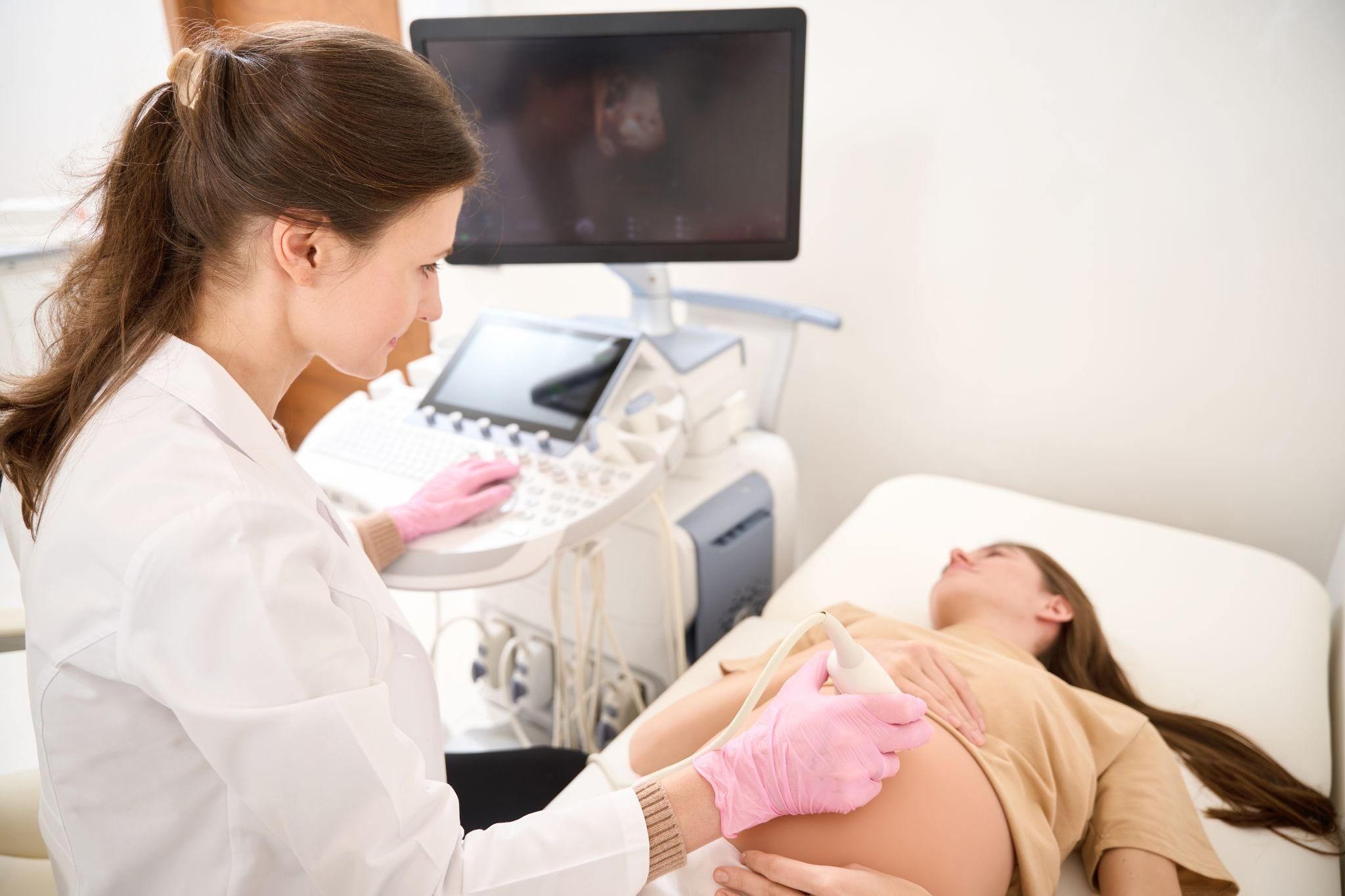Antenatal clinics are invaluable resources for expecting mothers, providing both physical and emotional support throughout pregnancy. From essential health screenings to mental health resources, antenatal clinics ensure that mothers receive comprehensive care tailored to their needs. Understanding the wide range of services these clinics offer can help you make the most of your visits and feel empowered, informed, and supported throughout your pregnancy journey.
This article explores the physical and emotional support offered by antenatal clinics, covering key aspects like prenatal checkups, mental health support, educational resources, and differences between NHS and private antenatal clinics.
Physical Support at Antenatal Clinics
Antenatal clinics prioritise the physical well-being of both mother and baby, offering comprehensive monitoring and preventative care to identify and address potential health concerns. The following sections highlight the physical support services you can expect at antenatal clinics.
1. Routine Health Screenings and Checkups
Regular health checkups are the backbone of antenatal care. Clinics monitor vital health metrics to ensure a healthy pregnancy for both mother and baby.
Blood Pressure Monitoring: High blood pressure during pregnancy can indicate conditions like preeclampsia. Regular monitoring ensures any issues are identified early.
Urine Tests: Urine tests screen for protein, glucose, and signs of infection. Protein in the urine, for example, can be an early sign of preeclampsia.
Blood Tests: Clinics conduct blood tests to check for anaemia, blood type, Rhesus factor, and infections. Regular testing helps maintain maternal health and identify any issues that might affect the baby.
NHS vs. Private Clinics: Health Screenings
NHS Clinics: The NHS provides essential checkups and screenings at no cost, covering the fundamental health checks needed during pregnancy.
Private Clinics: Private antenatal clinics may offer more frequent or additional health screenings. Some may also offer specialised tests not typically provided in standard NHS care, such as additional ultrasounds or advanced genetic screenings.
2. Ultrasounds and Fetal Monitoring
Ultrasound scans are crucial for monitoring fetal development, detecting abnormalities, and offering reassurance to expecting parents.
Dating Scan: Performed between 8 and 14 weeks, this scan helps determine the baby’s due date.
Anatomy Scan: Around 18-21 weeks, the anatomy scan examines the baby’s physical development to identify any abnormalities.
Growth Scans: In the third trimester, growth scans can be performed to monitor the baby’s size, position, and overall development.
Differences in Ultrasound Options
NHS Clinics: Generally provide two main scans (dating and anatomy) with additional scans for high-risk pregnancies.
Private Clinics: Private clinics often offer more frequent scans and options like 3D or 4D ultrasounds, providing parents with more detailed visuals of the baby. This additional monitoring can be reassuring for parents wanting more updates on their baby’s progress.
3. Nutritional and Physical Health Guidance
Antenatal clinics provide advice on maintaining a healthy lifestyle during pregnancy, covering topics like nutrition, exercise, and self-care.
Dietary Advice: Clinics offer dietary recommendations to ensure that mothers get the necessary nutrients, such as folic acid, iron, and calcium.
Exercise Guidance: Regular exercise is encouraged, and antenatal clinics may suggest suitable activities like walking, swimming, or pregnancy yoga to support physical well-being and prepare the body for labour.
Managing Symptoms: Clinics can offer advice on managing common pregnancy symptoms, such as morning sickness, fatigue, or heartburn, which can impact daily life.
4. Pain Relief and Birth Planning
Antenatal clinics discuss pain relief options and offer guidance on birth planning. This allows expecting mothers to make informed decisions about labour and delivery.
Pain Management Options: Clinics discuss both medical options (like epidurals and gas and air) and natural pain relief methods (such as breathing techniques).
Birth Preferences: They provide guidance on creating a birth plan, including preferences for labour positions, birthing environment, and partner involvement.
Emotional Support at Antenatal Clinics
Pregnancy can be a time of emotional ups and downs, and antenatal clinics recognise the importance of addressing mental health and emotional well-being. Below are some of the ways antenatal clinics offer emotional support to expecting mothers.
1. Mental Health Screenings and Counselling Referrals
Mental health is a critical aspect of antenatal care. Clinics assess emotional well-being during routine checkups and offer referrals to support services if needed.
Screening for Anxiety and Depression: Antenatal clinics may conduct mental health screenings to identify symptoms of antenatal anxiety or depression.
Counselling Referrals: For mothers experiencing heightened stress or mental health concerns, clinics can provide referrals to counsellors or support groups for further assistance.
NHS vs. Private Clinics: Mental Health Support
NHS Clinics: The NHS provides basic mental health assessments and can refer patients to community mental health services or therapy.
Private Clinics: Private antenatal clinics may offer in-house mental health counselling or quick access to private therapy options. Some clinics may even provide individual or couples’ therapy sessions to support both partners through the emotional aspects of pregnancy.
2. Partner Support and Involvement
Antenatal clinics encourage partner involvement, offering classes and consultations that allow partners to actively participate in the pregnancy journey.
Partner Classes: Some clinics offer specific classes for partners, covering topics like supporting the mother during labour, newborn care, and breastfeeding.
Birth Preparation: Clinics help partners understand how they can assist during labour, making them feel more prepared and confident in their support role.
3. Support Groups and Peer Connections
Connecting with others going through a similar experience can be incredibly supportive. Many antenatal clinics offer group classes or peer support opportunities.
Group Antenatal Classes: These classes provide an opportunity to meet other expecting parents, share experiences, and form a support network.
Online Support Groups: Some clinics facilitate online groups where mothers can discuss their concerns, ask questions, and receive reassurance from others on the same journey.
4. Educational Resources on Managing Stress and Anxiety
Pregnancy can bring about various stressors, and antenatal clinics provide resources to help manage these challenges. These resources include:
Mindfulness and Relaxation Techniques: Clinics may offer information on mindfulness practices and relaxation exercises that can reduce anxiety during pregnancy.
Stress Management Tips: Advice on coping with stressors, including breathing exercises, journaling, and other self-care practices, is often provided as part of antenatal education.
Choosing Between NHS and Private Antenatal Clinics for Physical and Emotional Support
When deciding between NHS and private antenatal clinics, it’s essential to consider your specific needs and preferences.
Cost and Coverage: NHS antenatal care is free of charge, providing essential physical and emotional support services. Private clinics, however, may offer additional services at a cost, including more personalised mental health support and specialised consultations.
Class Size and Personalisation: NHS antenatal classes are often in group settings, which provide social support but may lack individual attention. Private clinics may offer smaller classes or even one-on-one sessions, allowing for a more personalised experience.
Speed of Access: Private clinics generally offer faster access to certain services, like additional ultrasounds or therapy appointments, which can be beneficial for mothers needing more frequent support.
Questions to Ask at Your Antenatal Clinic
To make the most of your antenatal care, consider asking your clinic these questions:
What physical and mental health screenings are available?
Are there specific resources or classes for managing anxiety or stress?
How are partners encouraged to participate in antenatal care?
Can I access additional ultrasounds or personalised support if desired?
Are there support groups or opportunities to connect with other parents?
Antenatal clinics provide essential physical and emotional support that prepares mothers for a healthy pregnancy and delivery. With services ranging from health screenings and ultrasounds to mental health support and educational classes, these clinics ensure that expecting mothers feel supported and informed. Whether you choose an NHS or private clinic, understanding the resources available can help you make the most of your antenatal care, creating a positive and empowering experience as you prepare for motherhood.
References
- The Ultimate Antenatal Classes
Prepare for labour, birth, and baby care with nine experts, including senior NHS midwives and an award-winning obstetrician!
https://unii.com/en/journey/ultimate-antenatal-classes









